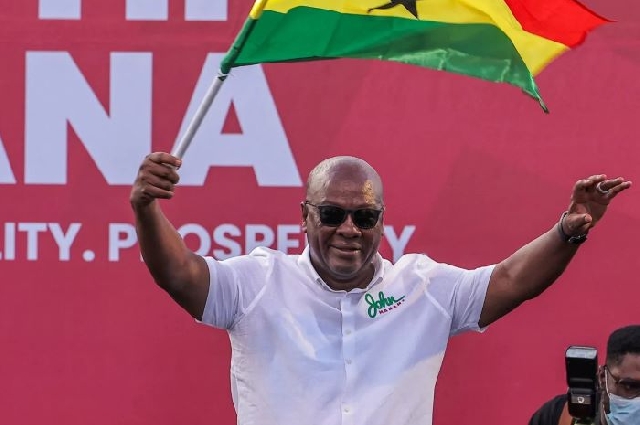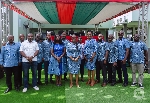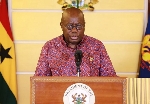Ghana becomes record fifth African nation to see opposition victory this year
 John Dramani Mahama
John Dramani Mahama
Ghana's Vice-President Mahamudu Bawumia has conceded defeat in Saturday's elections, congratulating opposition leader and former President John Mahama on his victory. Early results suggest this could be one of the heaviest defeats in decades for the New Patriotic Party (NPP), which had been in power since 2016.
Voters were angered by a combination of the rising cost of living, a series of high-profile scandals and a major debt crisis that prevented the government from delivering on key promises. As a result, the NPP may have dropped below 45% of the presidential vote for the first time since 1996.
Ghana's vote brings to an end a remarkable 12 months in African politics, which have seen five transfers of power - more than ever before. This "annus horribilis" for governments has now also brought opposition victories in Botswana, Mauritius, Senegal and the self-declared republic of Somaliland.
Even beyond these results, almost every election held in the region this year under reasonably democratic conditions, has seen the governing party lose a significant number of seats.
The trend is likely to continue into 2025, and will cause trouble for leaders such as Malawian President Lazarus Chakwera, whose country goes to the polls in September.
One of the most striking aspect of the elections that have taken place in 2024 is that many have resulted in landslide defeats for governments that have previously appeared to have a strong grip on power - including in countries that have never before experienced a change at the top.
The Botswana Democratic Party (BDP) that had ruled the country since independence in 1966 was crushed in October’s general elections.
As well as losing power, the BDP went from holding 38 seats in the 69-strong parliament to almost being wiped out.
After winning only four seats, the BDP is now one of the smallest parties in parliament, and faces an uphill battle to remain politically relevant.
There was also a landslide defeat for the governing party in Mauritius in November, where the Alliance Lepep coalition, headed by Pravind Jagnauth of the Militant Socialist Movement, won only 27% of the vote and was reduced to just two seats in parliament.
With its rival Alliance du Changement sweeping 60 of the 66 seats available, Mauritius has experienced one of the most complete political transformations imaginable.
Senegal and the self-declared republic of Somaliland also saw opposition victories.
In the case of Senegal, the political turnaround was just as striking as in Botswana, albeit in a different way.
Just weeks ahead of the election, the main opposition leaders Bassirou Diomaye Faye and Ousmane Sonko were languishing in jail as the government of President Macky Sall abused its power in a desperate bid to avert defeat.
After growing domestic and international pressure led to Faye and Sonko being released, Faye went on to win the presidency in the first round of voting, with the government’s candidate winning only 36% of the vote.
Source: BBC
Trending News

Kofi Job Construction CEO donates to 1,000 widows and vulnerable individuals
00:51
Zoomlion employees honoured for dedication at end-of-year party
01:01
ORAL Is not a witch-hunting committee – Mahama
15:59
Ghanaian citizen sues Wesley Girls’ SHS for allegedly denying Muslim students right to practise their religion
01:43
#2024Polls: Patrick Yaw Boamah secures victory in Okaikwei Central after EC's re-collation
00:51
#2024 Polls: EC nullifies Parliamentary results for Dome Kwabenya, 2 others
16:48
Wisdom, strength, and God's blessings for our new leaders – Akufo-Addo congratulates Mahama, MPs-elect
01:27
Akufo-Addo blames NDC leadership for post-election chaos
00:42
Support us in carrying out our mandate – EC to citizens
15:31
Take firm action against threats to our country's stability, harmony – Akufo-Addo to Security Services
01:14



